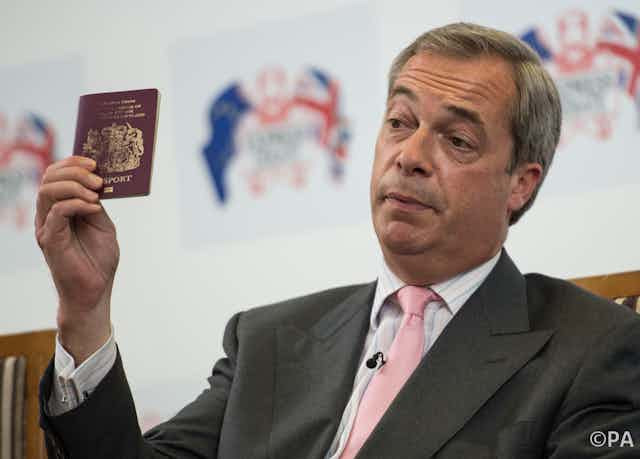The debate on the EU referendum has increasingly become a debate about immigration. And what began as a debate about immigration – whether Britain is better off managing migration within or outside of the EU – has in many instances become a debate about immigrants.
This raises questions of where the line is drawn between concern about services and communities and simply being racist.
To listen to some British people, European immigrants are taking their jobs (or claiming British benefits) and putting a strain on British schools and the NHS. Some of them are accused of thieving, begging and trafficking – and all of them are just crowding out an already crowded country.
Somewhere along the road, the referendum debate stopped being about what Britain should do about immigration and became an argument about immigrants. TV, social media and newspapers are full of people vilifying the migrants themselves.
When the debate gets personal like this we end up on shaky ground. Donald Trump reminds us of that when he calls for a ban on all Muslim immigrants or describes Mexicans as rapists.
This assigns undesirable traits to groups of people on the basis of their ethnic or religious attachments. Those traits are inescapable because they are ethnically or religiously determined – people don’t have a choice in the matter, it’s simply who they are. That is a racist logic, plain and simple – and Trump has been roundly criticised for it.
So how is the kind of thing Trump says different from what we’re hearing in the UK now?
For one, it’s different in tone and intensity: no one in Britain is (yet) calling EU migrants rapists or terrorists (though it has been implied in reference to non-EU migrants).
But does Britain’s civilised approach to disparaging immigrants also conceal a racist logic? It does when generalisations are made about groups of people based on things those people can’t change – their ethnic and national origins.
When we link migrants to benefit scrounging and petty crime, we are implying there is something morally deficient about these migrants. They become parasites preying on their generous and well-meaning hosts.
This doesn’t simply describe what these migrants do, it describes who and what they are, as part of their innate and therefore unchangeable character. Their unscrupulous behaviours have foreign origins – and we see those origins as directing their actions when they get to Britain.
When the face of this migration is splashed on the front pages of tabloids and bandied about in anecdotes, the menacing nature of these immigrants is made even more concrete. When mugshots of Roma feature on the front pages of tabloids, the association between East Europeans and crime is not only reinforced, we’re also reminded that East Europeans are (racially) different from us.
We don’t appear, after all, to be all that concerned with all the French, Italian and Spanish “migrants” living and working in the UK (or the Irish for that matter who will continue to enjoy unfettered access to the UK no matter the outcome of the referendum). We talk about European migration, but most of the time we really mean East European migration.
And when UKIP shows us a long queue of refugees amassed at the Slovenian border, they not only turn questions of numbers into questions of people, they make sure those people (who in this case aren’t actually EU citizens) are visibly (ethnically, racially, religiously) different from us. The problem with our broken immigration policy, runs this logic, is with the kind of people who want to get in to our country.

Not all talk about immigration, or immigrants, is racist. But the more energy we spend blaming migrants for our problems, the greater risk we are at impugning the integrity of migrants according to what we perceive as innate national or ethnic flaws.
Never mind that European migrants – including those from Eastern Europe – are not migrants according to their legal status, but Europeans exercising their treaty rights of free movement. Never mind that Europeans pay far more into the system than they take out in benefits, their strain on services tends to be localised – and, of course, most are not criminals.
By turning a debate about British membership into the EU into a rant about immigration, and by turning that rant about immigration into disparagement of immigrants, we’re flirting with a more subtle form of racist politics – the very same brand of politics for which Trump is condemned.

